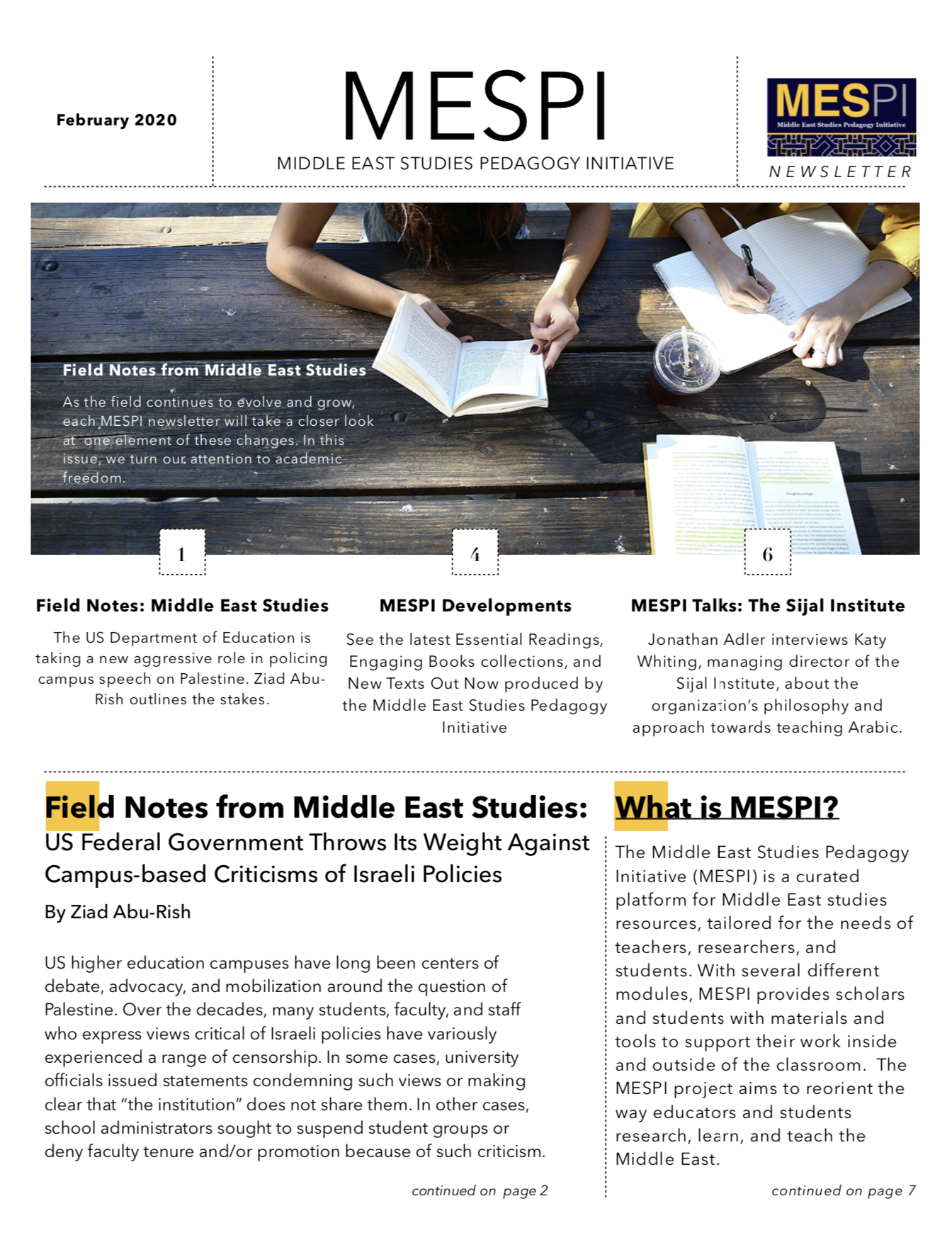We are happy to announce the first issue of the MESPI Newsletter, featuring articles, interviews, updates on our field, pedagogic news, and more. Should you be interested in contributing to the newsletter, please email us at newsletter@mespi.org.
The Middle East Studies Pedagogy Initiative (MESPI) is a curated interactive platform for Middle East studies resources, specifically tailored for the needs of teachers, researchers, and students. It is a one-stop-shop for course design on the macro level, lesson planning on the micro level, and for scholarship vis-a-vis specific topics, countries, and disciplines. The MESPI project strives to reorient the way educators and students research, learn, and teach the Middle East. For more information, visit www.MESPI.org.
[Click image to download the newsletter as a PDF.]
